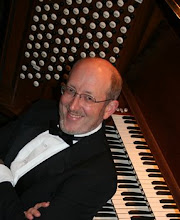Was all bright-eyed and bushy-tailed about going outside to get--to enjoy--some fresh air. Found the direct sunlight (even though filtered through clouds) oppressive. Had to move the table and chairs into the shade. Then had to go inside to get the A/C power for the laptop, since in "battery" mode the backlight isn't bright enough to combat the general brightness of the outdoor light.
By the time I finally got everything together and sat down, I found that I had no energy to sit up and enjoy the outside, and really wanted to go BACK inside. (Did decide to stay outside, though, which is where I am now, figuring that this was one of those times to push through rather than fold up.) And I am enjoying the air, so that at least is good.
A friend of mine with MS says that sometimes he craves sunshine (he thinks it's his body asking for vitamin D). I never crave sunshine (although I do like it on my legs, rather than my torso or head). I crave air: gently moving, fresh air. Always have. Always. Especially off the mountains or the ocean. Not the beach, mind you, see above under "don't like sunshine," but the air off the water is just wonderful.
Well, just as it took me way too long to sit down to doing this, it took me a while to get to where I wanted to start, but... there you go. And off we go.
A former student of mine is currently going through the usual "settling traumas" in the first week of his summer internship. He doesn't know anything (he says), certainly isn't good enough to be in the company he's in (he says), and so on.
Winona Rider said in an interview that she constantly lives in fear that someday, they'll realize she really doesn't know anything about what she's doing, and it'll be all over. So he's certainly not alone, and OH boy he's not alone having first-day-of-work anxieties. And of course, who among us doesn't have plenty to talk about regarding self-worth issues? But that's not the story for today... I was going to write this directly to him, but it seemed germane to our MS discussion, so I'm sharing it here.
There's "head" learning and "hand" learning. Head and hands learn things different ways, and at different rates. Head learns things in a flash. I'm not talking about grinding/memorizing, I'm talking about understanding. There's some point where you go from "I don't understand" to "I do understand," and although understanding depth takes time, understanding things goes quickly. "Oh, look at the dates, that's why William Billings sounds so much like x, y, and z composers... " "Oh, accelleration is rate of change of velocity, even though velocity is the rate of change of something, that's how it works..." Click, and you got it. It may take a while to get the switch to click, but once it clicks, it's there, and you "got it."
Hand learns things through repetition. That's the only way. Hand can't "understand" its way out of something, it has to learn by doing, over, and over, and over. I asked a sushi chef once how he learned to make rolls so nicely. He said, "Roll five thousand." My kyudo teacher's response to questions like "how do you learn how to do X" (as it is to so many questions we ask him) is inevitably "Shoot again."
We who live in our heads have a hard time accepting our hand's learning curve. We think we should just "get it" in a flash, and if we don't, we're "dumb." Or worthless. Or at immediate risk of exposure as incompetent boobs, and thus at immediate risk of termination, and thus fated to live out our days under a bridge eating newspapers and drinking Woolite and other people's urine (seasoning the newspapers, don't you know).
We don't remember that when we look at all those people "so much better than we are," you're not seeing their first attempts at anything. That they got where they are the same way you did: by screwing up their first attempts, figuring out what was wrong, and then doing it again. And again. And again.
I've heard Mozart K. 1, the first piece that Mozart ever "wrote." (The "K" numbers were assigned by Koechel, the guy who made the catalog of Mozart's works, and the numbers are assigned in order in which the pieces were composed.) K.1 sounds like Mozart dropped the cat on the keyboard and had almost caught it in time to keep it from bouncing. Nobody performs Mozart K. 1. Nobody, except oddball musicologists who like to collect composer lint and fingernail clippings, remembers or even cares about Mozart K. 1. One of Mozart's most popular symphonys, the "Haffner," is K. 385. Gee, you think maybe that writing the three hundred eighty four other things might be why thing #385 is so good?
Head learns by getting things right. Hand learns by getting things wrong, then eliminating the wrong until only the right remains. Head doesn't like this method at all; Head doesn't like what it feels like to be in the state of "wrong." (Hand doesn't care, it just notices and tries again.)
And Heart... simply understands. "Understanding" is one of the many things Heart does better than anybody else.
Which brings us back to MS. Living with MS is a craft more than an art, which means it's a "hand" rather than "head" task. Which means that if you want to learn how to walk when your leg is malfunctioning, you need to walk. And get it wrong. And do it again, until you can eliminate the wrong and only right remains. But that takes time, and repetition; neither of which Head enjoys.
Oh well.
Monday, June 15, 2009
Subscribe to:
Post Comments (Atom)



No comments:
Post a Comment